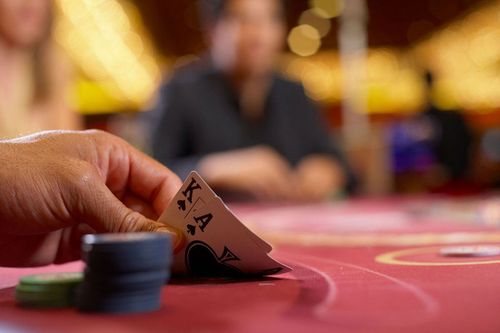Winning on Blackjack
Blackjack is a unique casino table game – it offers the player an almost 50% chance to win against the house, more than any other casino game I know. That is, of course, if you play not just with your gut, but also your head. Blackjack is the only casino game in which you can improve your chances of winning by using a simple, but effective strategy.
 There are three simple rules that you should always keep in mind when playing blackjack:
There are three simple rules that you should always keep in mind when playing blackjack:
Rule #1. Always assume the dealer’s hidden card is a 10
Rule #2. Never take insurance
Rule #3. Don’t get greedy
Rule #1
In a game of blackjack you have a great advantage: you see one of the cards in the dealer’s hand, and you can use this knowledge to predict the most probable value of the house hand. It is important, though, to always assume the house has a concealed 10 in its hand, to avoid surprises, and to hit and stand accordingly.
For example, if the dealer has an upcard with a value of 2 to 6, you can assume the other one is a 10, in which case the dealer will surely hit. The chances are good that the third card the dealer receives will be a high one, even a 10, so the house will go bust and you can win even with a hand of 15, 16, or even 13 for that matter.
If the dealer’s upcard is an 8, 9 or 10, assuming the concealed one is a 10, you should never stop below a hand of an at least equal value. If your chances for such a hand are slim, you can surrender (and lose only half of your bet) instead of going bust or losing to a better hand on the house’s side.
If the dealer’s upcard is a 7, it depends on the table rules what you can do. Some tables require the dealer to hit on a soft 17 (a hand that has a value of 17 out of two cards), others don’t. If they do, you can play as in the first example, as the dealer will surely hit on 17. If the dealer can stand on 17, things change a bit – you’ll need at least a hand of 17 or over to win, so you can play accordingly.
Rule #2
The possibility of having a blackjack – an Ace and a card with a value of 10 – are rather slim, both for you and the dealer. When the dealer’s upcard is an Ace, the house offers players the chance to take insurance – a side bet that pays out 2 to 1. It’s quite attractive, but in most cases it is a losing bet, so there’s no use in placing it. If the dealer has blackjack, your initial bet is lost anyway, while if not, you can still surrender, or in many cases win the hand.
Rule #3
Greed or over-enthusiasm lead to losing most of the times. Doubling up and losing, splitting a hand of 18 or 20 when it is an almost sure winner are all bad ideas, and can lead to losing more than just your initial bet. If you are serious about making money playing blackjack, you should avoid these.
I always play by these rules – mostly at the Royal Vegas casino – and they haven’t let me down until now. Try them, and if they work for you as well as they worked for me, return here and leave a message.

